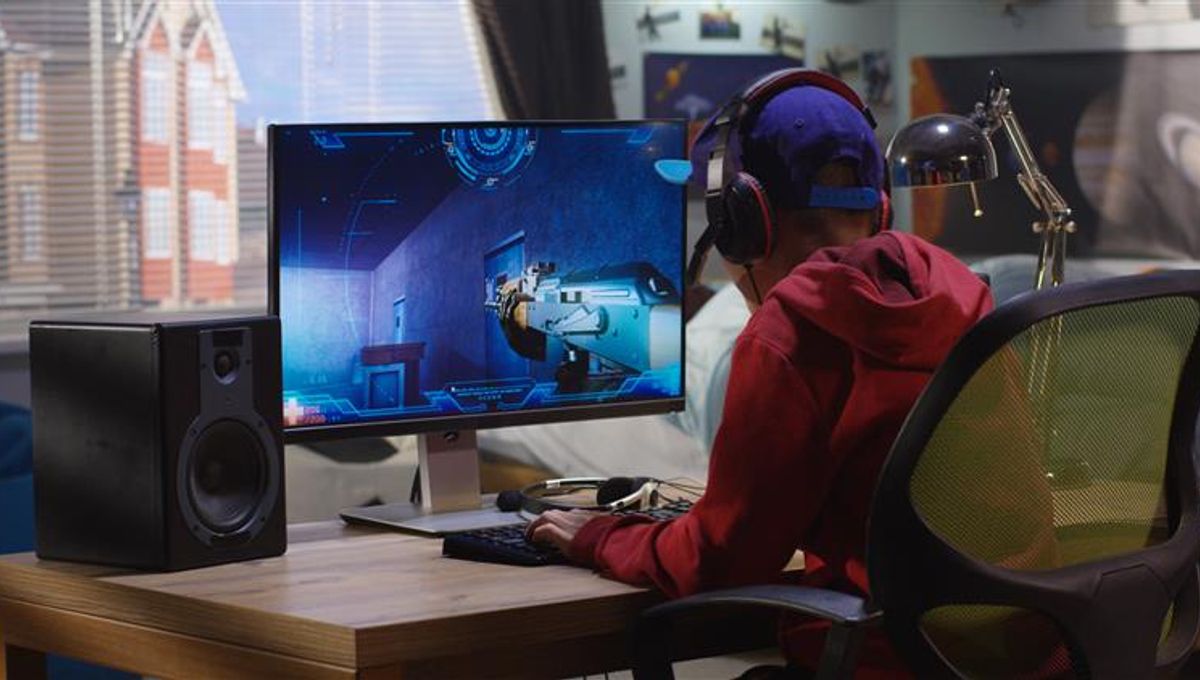
Do video games make people more violent? It is a persistent belief among some people that they do, but the empirical evidence does not seem to support it. In fact, a new study has demonstrated that, contrary to making people more aggressive, playing violent video games can actually lower stress hormone levels in some players. It seems the relationship between video game content and player behavior is more complex than often assumed.
The idea that video games make people more violent has been a contentious claim for many years. Within the public sphere, random acts of violence have sometimes been blamed on the perpetrator’s use of video games. In fact, in 2019, after a series of school shootings in the US, many commentators blamed video games for inspiring violence.
Interestingly, previous research has shown that the video game explanation is often offered by people when the shooter is a white male, rather than Black. This seems to suggest a kind of cultural blind spot where racial minorities are more stereotypically associated with violence. But while the evidence continues to show that the relationship between video game content and violence is far more complicated, the whole “video games did it” argument continues to appear.
This belief motivated researchers to take a closer look at the assumed association by examining the physiological and psychological effects of violent video games on players.
“I am interested in this topic as I am a gamer myself. Since I was little, I was fascinated by video games and the virtual worlds. I played because it was fun, because I enjoyed the competition, to enjoy good stories, but also to relief some stress of my daily life,” study author Gary L. Wagener, a doctoral researcher at the University of Luxembourg, told PsyPost.
For Wagener, the inconsistencies between studies into video games and violence were a point of curiosity. Although there are some that have suggested a potential link between video games and heightened aggression, others have shown that this is not the case. But the media depictions of violent games do not reflect the complexity of this ongoing debate. As such, he decided to “investigate violent video game effects myself”.
Wagener recruited 54 male participants through a mix of university mailing lists, social media, and advertisement posters. Each participant was randomly assigned to either play a violent or non-violent part of the video game “Uncharted 4: A Thief’s End”. Each participant played their assigned passage for 25 minutes.
Before and after the participants played the game, researchers measured their levels of cortisol (a stress hormone) and testosterone using saliva samples. Participants also completed questionnaires to measure their personality traits. These questionnaires assessed the “Dark Tetrad” or “triad” traits, which include levels of narcissism, psychopathy, sadism, and Machiavellianism.
Finally, the participants took an Implicit Association Test to measure their aggressive tendencies.
Contrary to what you might expect, the results found no significant changes to levels of testosterone in either group. Moreover, participants who played the violent part of the game actually had lower cortisol levels after it. This suggests that, rather than increasing stress, the violent content may have actually relaxed the players.
In addition, the Implicit Association Test results showed no significant difference between the two groups of participants.
“What was surprising for us in the end was that playing a violent video game had no effect on aggression whatsoever, even taking physiological effects and personality into account but it provided even beneficial physiological effects,” Wagener added.
“The average person should take away from this study that there is no clear picture that violent video games are harmful for players,” Wagener explained. “They do not necessarily increase aggression in any way but can even have positive relaxing effects for players.”
This finding is significant but the study still has its limitations. Firstly, the results cannot necessarily be generalized to other games. Wagener and colleagues are continuing to broaden the material they use to gain a greater understanding of these findings.
Secondly, the study focuses solely on male participants. This was principally done to reduce variability and control factors linked to menstrual cycles and oral contraceptives, which could impact hormone levels. This then opens the prospect of studying the influence violent games may have on women.
Future research will need to address these limitations. A larger pool of content and larger sample sizes using both male and female participants would add more detail to our understanding of this complex relationship between video games and violence.
Wagener and colleagues are viewing this as the first step in ongoing research. Hopefully, we will be seeing a sequel to this work in the near future.
The paper is published in Physiology & Behavior.
Source Link: Violent Video Games Don't Increase Aggression And Might Actually Be Beneficial